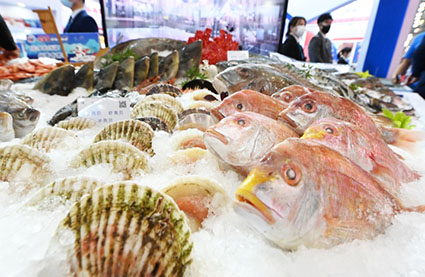by WorldTribune Staff, September 13, 2023
Tokyo is set to unveil new economic security and industrial policy guidelines said to include measures to prevent economic coercion, support for countries that have been subject to such acts, and trade restrictions like increased tariffs on the offenders.

The government of Prime Minister Fumio Kishida did not mention China by name in spelling out the new measures, but analysts say there is no question at the primary target they are aimed at.
“Japan’s government will lay out ways to respond to economic pressure in a plan due out this year, aiming to work with other countries and industry to counter abuses from countries like China,” Nikkei Asia reported on Sept. 9.
The guidelines are also expected to include measures to deal with forced technology transfers, which China is notorious for. Japan aid it plans to identify technologies in which it has an advantage and work with industry to safeguard against leaks.
More than 130 cases of coercive behavior by China were identified from 2010 to June 2023, according to data obtained by Nikkei Asia from the German think tank Mercator Institute for China Studies.
The report cited examples:
• After Australia called for an investigation into the origin of Covid, the communist regime in Beijing responded with increased tariffs on Australian timber, coal, wine and other products.
• Taiwan voicing opposition to Beijing’s insistence that they are the same country under its “One China” policy resulted in import bans on seafood and other products from the island.
• Last month, China suspended imports of Japanese seafood following the release of treated wastewater from the Fukushima Daiichi nuclear power plant despite reports of its own environmentally-damaging wastewater discharges. A boycott list of Japanese companies such as cosmetics makers Shiseido and Kao has spread on Chinese social media.
Group of Seven leaders meeting in Hiroshima this year vowed “to increase our collective assessment, preparedness, deterrence and response to economic coercion.”
Some companies have shuttered production facilities in China due to the risk of technology leaks.
Japan’s Oki Electric Industry has stopped producing printers in China, and Fujifilm Business Innovation said it plans to close its Shanghai multifunction printer factory next year.
“We need to build a framework that can respond quickly while maintaining the validity of international rules,” said Junichi Sugawara, a principal at Tokyo-based Owls Consulting Group.
“China, which joined the World Trade Organization in 2001 and has benefited from free trade, has shown a tendency to give preferential treatment to foreign manufacturers until their technology can be acquired and domestically reproduced. After that, these companies face a harsher reality,” the Nikkei Asia report noted.
The European Union has reached an agreement on draft rules to combat economic coercion, which will come into force this fall. The U.S. Congress is also considering a bill that includes measures to counter economic pressure with China in mind.
Please Support Real Journalism
Hello! . . . . Intelligence . . . . Publish
